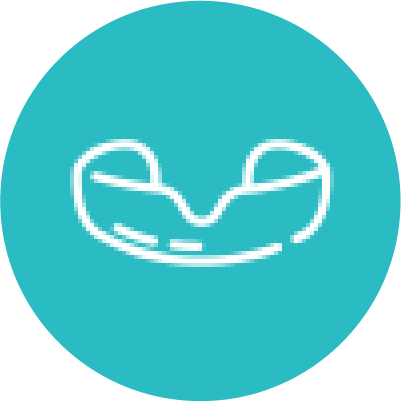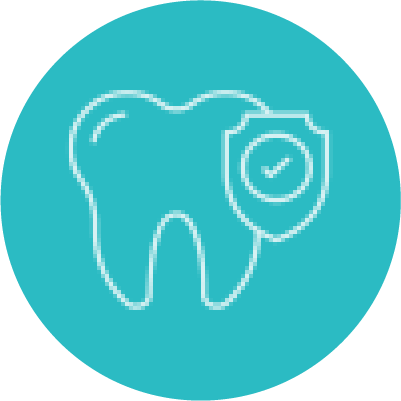Bruxism Treatment Brisbane
[rank_math_breadcrumb]

Bruxism is a dental condition that may require treatment in Brisbane that is characterised by the involuntary grinding or clenching of teeth. It can have various underlying causes, including stress, anxiety, misaligned teeth, or certain medical conditions.
There are two main types of bruxism:
Sleep Bruxism: This type of bruxism occurs during sleep and is usually characterised by rhythmic teeth grinding. Other sleep-related disorders may accompany it.
Awake Bruxism: This involves clenching or grinding the teeth while awake. It can be a response to stress, tension, or concentration and may occur without the individual realising it.
Bruxism often impacts the lower and upper teeth equally. However, it can be more troublesome if it affects your lower teeth. It is common for people only to realise they frequently grind their teeth once this becomes a problem. Signs like headaches, aching jaw, or neck discomfort often indicate that it is time to seek help from a dental expert to find relief.

The causes of bruxism, or teeth grinding and clenching, can vary and may include:
Recognising the signs and symptoms of bruxism is crucial for timely intervention and effective management. Common indicators include:
Audible grinding or gnashing of teeth, often noticed by a sleeping partner or family member.
Heightened sensitivity to hot, cold, or sweet foods and beverages due to enamel erosion caused by grinding.
Notable flattening, chipping, or fractures on the chewing surfaces of teeth due to grinding.
Teeth becoming loose or mobile without apparent reason.
Discomfort or pain in the face, ears, or neck, often due to muscle tension resulting from clenching
Bruxism can lead to disrupted sleep patterns, causing tiredness or insomnia.
At Brisbane Dental Clinic, we offer specialised bruxism treatments in Brisbane to provide relief from teeth grinding and clenching. Our experienced team is dedicated to helping you maintain optimal oral health and prevent dental damage caused by bruxism.

Our custom-fitted splints or mouthguards act as protective barrier between your upper and lower teeth, reducing the impact of grinding during sleep. They are designed to effectively prevent enamel wear and minimise the effects of bruxism.

Addressing misaligned teeth or improper bite is crucial to our bruxism treatment approach. Our dental professionals can recommend corrective procedures to improve dental alignment and alleviate grinding.
Diagnosis of sleep bruxism usually involves a detailed history and clinical examination by your dentist. Symptoms like jaw discomfort upon waking, tooth wear, or enlarged jaw muscles indicate sleep bruxism. Morning headaches and generalised tooth sensitivity can also be signs.
Bruxism treatment is generally not painful. The primary goal of treatment is to alleviate any discomfort or pain caused by teeth grinding and clenching. The specific treatment approach will vary based on the severity of bruxism and its underlying causes. For example, wearing a custom-fitted dental splint or mouthguard, a common bruxism treatment, is usually comfortable and painless. These devices provide a protective barrier between the teeth, preventing further damage and reducing discomfort
A mouthguard is a protective device worn over the teeth to prevent injury, damage, or discomfort. It is typically made from durable materials like plastic and is custom fitted to the shape of your teeth and mouth. Mouthguards serve various purposes, such as sports protection, bruxism management, nighttime teeth grinding, jaw pain relief, and orthodontic protection.
Bruxism, characterised by teeth grinding and clenching, can lead to headaches due to heightened muscle tension and stress on the jaw and surrounding structures. This tension can radiate to various head areas, such as the temples, forehead, and back of the head, resulting in tension-type headaches. Additionally, bruxism strains the temporomandibular joint, connecting the jaw to the skull and potentially extending discomfort to the head.
The duration to effectively manage or alleviate bruxism (teeth grinding and clenching) varies depending on several factors, including the underlying causes, the severity of the condition, chosen treatment methods, and individual response. Bruxism is often a chronic condition, and a complete cure may not always be possible. However, symptoms can be significantly reduced or eliminated with appropriate treatment and management.
Bruxism, the chronic grinding and clenching of teeth, can result in dental and oral issues over time due to the consistent pressure on teeth and jaw muscles. These include wearing down the enamel, leading to sensitivity and cavities, and the potential for cracked or chipped teeth requiring dental repairs. Gum recession, jaw discomfort, headaches, and the development or worsening of temporomandibular joint disorder (TMD) can also arise.

If you are ready to end teeth grinding and find relief from bruxism, speak to us. We provide expert care and personalised solutions to clients residing in Woolloongabba, Annerley, Yeronga, Greenslopes, East Brisbane, Tarragindi, Highgate Hill, Norman Park, Dutton Park, Coorparoo, Moorooka, Stones Corner, South Bank, Westend, Paddington, and New Farm.
Don’t let teeth grinding impact your well-being any longer. Book your appointment now and take control of your oral health journey.